This article was co-authored by Lyssandra Guerra. Lyssandra Guerra is a Certified Nutrition & Wellness Consultant and the Founder of Native Palms Nutrition based in Oakland, California. She has over five years of nutrition coaching experience and specializes in providing support to overcome digestive issues, food sensitivities, sugar cravings, and other related dilemmas. She received her holistic nutrition certification from the Bauman College: Holistic Nutrition and Culinary Arts in 2014.
There are 11 references cited in this article, which can be found at the bottom of the page.
wikiHow marks an article as reader-approved once it receives enough positive feedback. This article received 15 testimonials and 83% of readers who voted found it helpful, earning it our reader-approved status.
This article has been viewed 349,282 times.
Approximately one in three heavy drinkers develop liver damage. When the liver breaks down alcohol, the process produces substances that damage the liver.[1] If this continues, eventually scarring develops in the liver, called cirrhosis. If cirrhosis has not yet started, the liver can still heal if you stop drinking alcohol and treat any malnutrition that you might have. Many people make great strides towards healing in just a few months.[2]
Steps
Recognizing the Symptoms and Getting Help
-
1Identify common early symptoms. If you are still in the early phases, you might not have symptoms. But as the disease progresses, your symptoms will get worse. Symptoms include:<refhttps://www.nhs.uk/conditions/alcohol-related-liver-disease-arld/</ref>[3]
- Abdominal discomfort
- Not being hungry
- Nausea or diarrhea
- Tiredness
-
2Look out for symptoms that suggest that liver damage is becoming more advanced. If you have these symptoms, it is crucial to stop drinking and get medical help to start reversing the damage:[4] [5]
- Jaundice or a yellow color in the skin and eyes
- Fluid pooling in your legs and abdomen
- Fever
- Itchiness
- Weight loss
- Hair loss
- Vomiting blood or passing bloody stool due to bleeding internally
- Personality changes, memory problems, and insomnia
- Numbness in your legs or feet
- Abdominal distention
- Melena (black, tarry stool)
- Vomiting blood
- Fatigue
Advertisement -
3Quit drinking. Your liver will not heal unless you stop drinking. Your doctor can help you make a plan that will fit your needs. Options include:[6]
- Medications, such as baclofen
- Counseling
- Support groups, including Alcoholics Anonymous
- Outpatient treatment programs
- Residential treatment programs
Treating Malnutrition and Promoting Liver Regeneration
-
1See a dietician or a nutritionist. A professional can help you come up with a plan that will improve your health and take your medical history and allergies into account.
- If the malnutrition is especially severe, you may need to be tube-fed with a special liquid diet.
-
2Eat a high-energy diet. The damage to your liver may mean that it isn’t able to store energy efficiently. If this has happened to your liver, you will need to eat extra to make up for what your body isn’t able to store.[7]
- Eating five to six small meals with healthy snacks may be helpful.
- Increase your intake of simple carbohydrates by eating fruits and your consumption of complex carbohydrates by eating whole-grain breads, potatoes, corn, peas, parsnips, lentils, beans, and nuts.[8]
- You can also supplement carbohydrates with a moderate amount of fat. This will provide you with extra energy.[9]
- If you lost weight while drinking, this may be because your body started breaking down muscle tissue to get the nutrients it needed.
-
3Consult your doctor or nutritionist to determine how much protein you need. What your doctor recommends may vary based on how severe the liver damage is.
-
4Add vitamin and mineral supplements. B vitamins are particularly important, but make sure you also include vitamin K and phosphate and magnesium.[12]
- B vitamins are necessary for your body to break down the food you eat and process it into energy. Thiamine, folate, and pyridoxine are types of B vitamins with which you can supplement.
- Fish, chicken, turkey, meat, eggs, dairy products, beans, peas, and leafy green vegetables have B vitamins.[13]
- If you aren’t getting enough vitamins from your diet, your doctor or nutritionist can recommend supplements. Always consult with a medical professional before adding any supplements, even herbal remedies, to be sure that your liver will be able to process it.
-
5Reduce your sodium consumption to 1,500 mg per day or less. This will help prevent fluids from building up in your legs, abdomen, and liver.[14]
- Try not to add salt to your food.
- Avoid highly processed, pre-packaged foods because these often have a lot of sodium added to them.
-
6Help your body flush out toxins by drinking plenty of water. The amount of water that you need will vary with your body size, activity levels, and the climate in which you live. At minimum, drink eight 8-oz glasses each day.
- If you urinate infrequently or pass cloudy or dark colored urine, then you are probably not drinking enough water.[15]
-
7Increase your appetite with moderate exercise. Exercise will help improve both your physical and mental well-being.
- Ask your doctor how much exercise is right for you.
Treating Liver Inflammation with Medication
-
1Use only medications approved by your doctor. This includes herbal remedies, supplements, and over-the-counter medications. Your doctor will be able to advise you on whether your liver will be able to handle the demands of processing that medication.[16] [17]
- Many medications or herbal remedies can be dangerous for your liver. Some common ones include aspirin, jin bu huan, ma-huang, germander, valerian, mistletoe, and skullcap.
- Do not take street drugs. They may further damage your liver.
- Avoid toxic chemicals such as fungicides, insecticides, aerosol sprays, and other fumes. If you must be around them, wear a mask.
-
2Ask your doctor about using corticosteroids to reduce inflammation. If your liver is badly damaged, these drugs may be beneficial.[18]
- They are usually not prescribed for patients with kidney failure, bleeding in the gastrointestinal tract, or an infection.
- Doctors usually prescribe prednisolone for 28 days. While on steroids, your doctor will have to monitor your blood glucose.
- Approximately two out of five people are not helped by corticosteroids.
-
3Consider pentoxifylline if corticosteroids don’t work for you.Be aware that the evidence in support of this medication is controversial.[19]
- Your doctor will know what the latest scientific developments are either in support of or against this medication.
- Pentoxifylline inhibits the cytokines that lead to more liver damage. This drug may be beneficial for those with mild to moderate liver disease.
- Sometimes both corticosteroids and pentoxifylline are used together.
-
4Try anabolic steroids or propylthiouracil if your liver damage isn’t too severe. These medications are controversial because there isn’t a lot of scientific evidence supporting their use.
- Anabolic steroids are strong steroids.
- Propylthiouracil was originally created as a thyroid medication.
-
5Discuss a liver transplant with your doctor. If your liver is failing this may be necessary. In order to receive a liver, you will need to:[20] [21]
- Have stopped drinking
- Be in good enough health to survive the operation
- Agree to abstain from alcohol for the rest of your life
- Other treatments have failed
Expert Q&A
Did you know you can get expert answers for this article?
Unlock expert answers by supporting wikiHow
-
QuestionHow does alcohol cause damage to the liver?
 Lyssandra GuerraLyssandra Guerra is a Certified Nutrition & Wellness Consultant and the Founder of Native Palms Nutrition based in Oakland, California. She has over five years of nutrition coaching experience and specializes in providing support to overcome digestive issues, food sensitivities, sugar cravings, and other related dilemmas. She received her holistic nutrition certification from the Bauman College: Holistic Nutrition and Culinary Arts in 2014.
Lyssandra GuerraLyssandra Guerra is a Certified Nutrition & Wellness Consultant and the Founder of Native Palms Nutrition based in Oakland, California. She has over five years of nutrition coaching experience and specializes in providing support to overcome digestive issues, food sensitivities, sugar cravings, and other related dilemmas. She received her holistic nutrition certification from the Bauman College: Holistic Nutrition and Culinary Arts in 2014.
Certified Nutrition & Wellness Consultant
-
QuestionMy liver is damaged, what foods might help?
 Chris M. Matsko, MDDr. Chris M. Matsko is a retired physician based in Pittsburgh, Pennsylvania. With over 25 years of medical research experience, Dr. Matsko was awarded the Pittsburgh Cornell University Leadership Award for Excellence. He holds a BS in Nutritional Science from Cornell University and an MD from the Temple University School of Medicine in 2007. Dr. Matsko earned a Research Writing Certification from the American Medical Writers Association (AMWA) in 2016 and a Medical Writing & Editing Certification from the University of Chicago in 2017.
Chris M. Matsko, MDDr. Chris M. Matsko is a retired physician based in Pittsburgh, Pennsylvania. With over 25 years of medical research experience, Dr. Matsko was awarded the Pittsburgh Cornell University Leadership Award for Excellence. He holds a BS in Nutritional Science from Cornell University and an MD from the Temple University School of Medicine in 2007. Dr. Matsko earned a Research Writing Certification from the American Medical Writers Association (AMWA) in 2016 and a Medical Writing & Editing Certification from the University of Chicago in 2017.
Family Medicine Physician
-
QuestionIf my labs show increasing liver improvement does this mean that my liver is healing despite an ultrasound showing I have surface modularity consistent with cirrhotic changes?
 Chris M. Matsko, MDDr. Chris M. Matsko is a retired physician based in Pittsburgh, Pennsylvania. With over 25 years of medical research experience, Dr. Matsko was awarded the Pittsburgh Cornell University Leadership Award for Excellence. He holds a BS in Nutritional Science from Cornell University and an MD from the Temple University School of Medicine in 2007. Dr. Matsko earned a Research Writing Certification from the American Medical Writers Association (AMWA) in 2016 and a Medical Writing & Editing Certification from the University of Chicago in 2017.
Chris M. Matsko, MDDr. Chris M. Matsko is a retired physician based in Pittsburgh, Pennsylvania. With over 25 years of medical research experience, Dr. Matsko was awarded the Pittsburgh Cornell University Leadership Award for Excellence. He holds a BS in Nutritional Science from Cornell University and an MD from the Temple University School of Medicine in 2007. Dr. Matsko earned a Research Writing Certification from the American Medical Writers Association (AMWA) in 2016 and a Medical Writing & Editing Certification from the University of Chicago in 2017.
Family Medicine Physician
Warnings
- Consult with your doctor or nutritionist before making dietary changes, taking any over-the-counter medications, or herbal supplements or remedies. If your liver is in a damaged state, you need to be sure that your liver will be able to handle it.⧼thumbs_response⧽
References
- ↑ Lyssandra Guerra. Certified Nutrition & Wellness Consultant. Expert Interview. 25 March 2020.
- ↑ https://my.clevelandclinic.org/health/diseases/17853-alcoholic-hepatitis
- ↑ http://www.nhs.uk/Conditions/Liver_disease_%28alcoholic%29/Pages/Symptoms.aspx
- ↑ https://my.clevelandclinic.org/health/diseases/17853-alcoholic-hepatitis
- ↑ http://www.nhs.uk/Conditions/Liver_disease_%28alcoholic%29/Pages/Symptoms.aspx
- ↑ https://www.helpguide.org/articles/addictions/overcoming-alcohol-addiction.htm
- ↑ http://www.nhs.uk/Conditions/Liver_disease_%28alcoholic%29/Pages/Treatmentpg.aspx
- ↑ http://www.nlm.nih.gov/medlineplus/ency/article/002469.htm
- ↑ http://www.nlm.nih.gov/medlineplus/ency/article/002441.htm
- ↑ http://www.nhs.uk/Conditions/Liver_disease_%28alcoholic%29/Pages/Treatmentpg.aspx
- ↑ http://www.nlm.nih.gov/medlineplus/ency/article/002441.htm
- ↑ http://www.nlm.nih.gov/medlineplus/ency/article/002441.htm
- ↑ https://my.clevelandclinic.org/health/diseases/17853-alcoholic-hepatitis
- ↑ http://www.nlm.nih.gov/medlineplus/ency/article/002441.htm
- ↑ http://www.nhs.uk/Conditions/Dehydration/Pages/Introduction.aspx
- ↑ https://my.clevelandclinic.org/health/diseases/17853-alcoholic-hepatitis
- ↑ http://livertox.nih.gov/Aspirin.htm
- ↑ https://my.clevelandclinic.org/health/diseases/17853-alcoholic-hepatitis
- ↑ https://www.drugs.com/mtm/pentoxifylline.html
- ↑ http://www.nhs.uk/Conditions/Liver_disease_%28alcoholic%29/Pages/Treatmentpg.aspx
- ↑ https://www.nhs.uk/conditions/cirrhosis/treatment/
About This Article
Alcoholism can often damage your liver, but with the right diet and support plan, you can help it heal. The first step to healing your liver is quitting drinking. This will be easier if you work with your doctor to come up with a treatment plan. They can provide you with medication and counseling and refer you to treatment programs. As well as following your plan, make sure you drink plenty of water, which will flush toxins out of your body. Aim to do a few hours of exercise a week to help keep your body and mind in shape. If you find yourself getting fatigued easily, it may help to go on a high-energy diet with plenty of carbohydrates and 5 or 6 smaller meals a day. You should also try to limit your salt intake to prevent fluid from building up in your abdomen or liver. For more advice from our Medical co-author, including how to identify liver damage, read on.

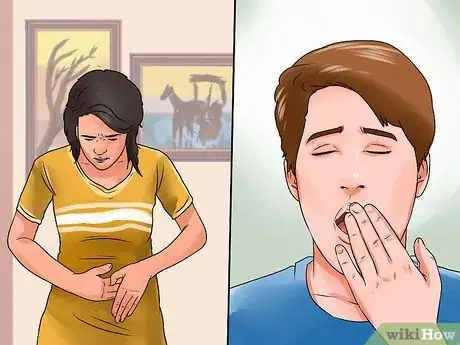
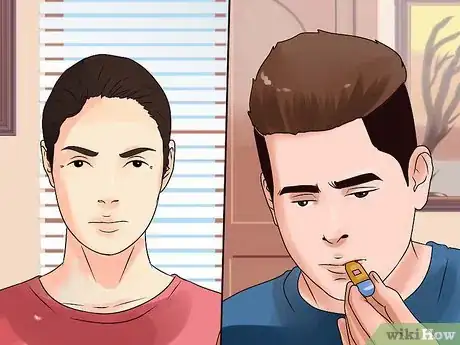
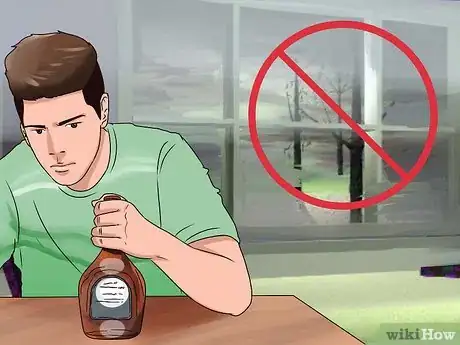
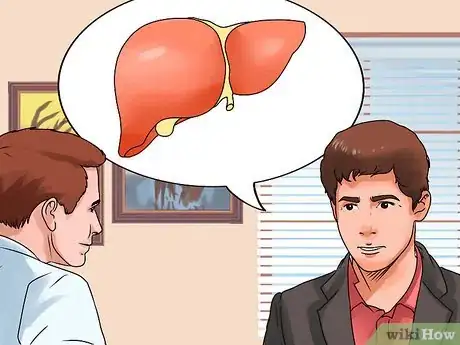
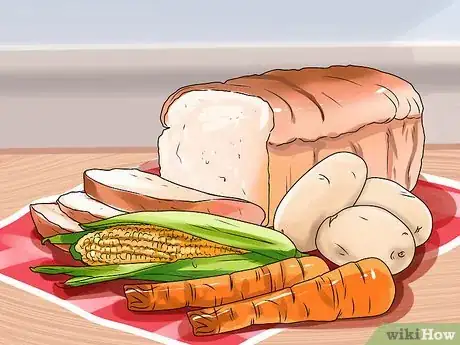
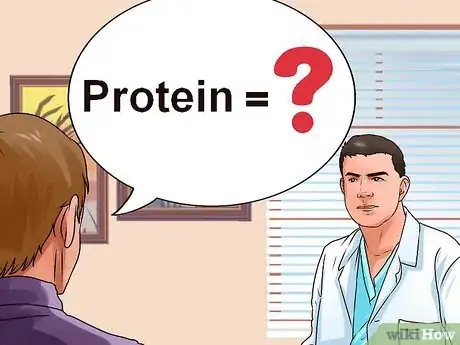
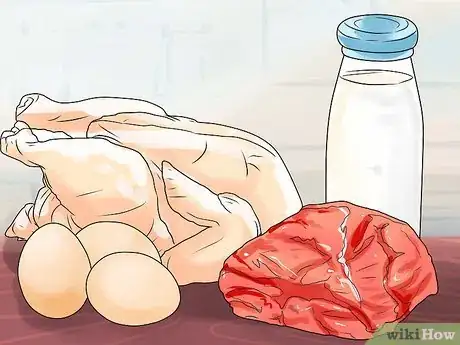
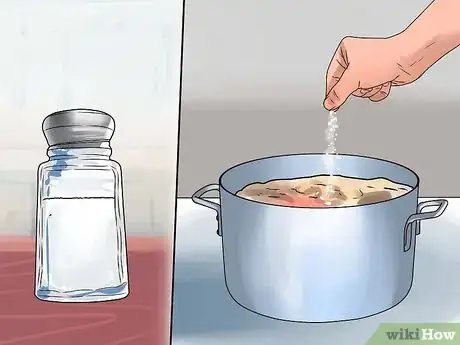
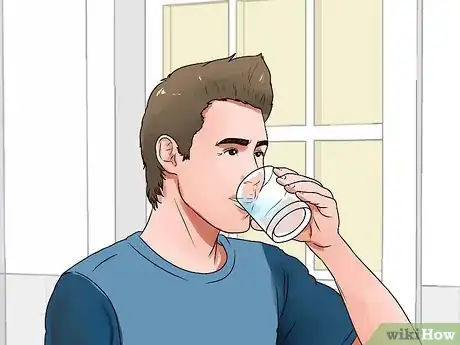
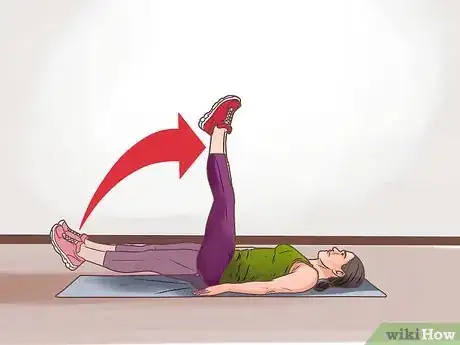
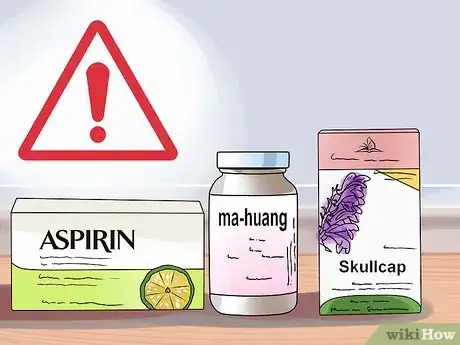
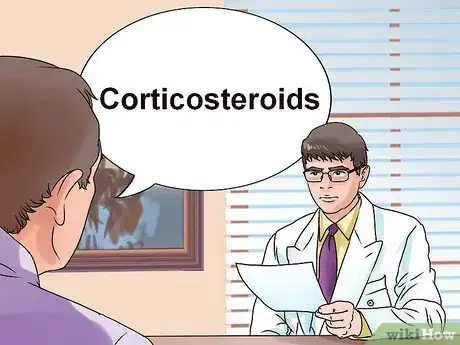
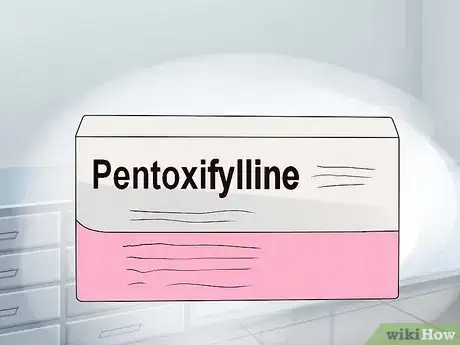
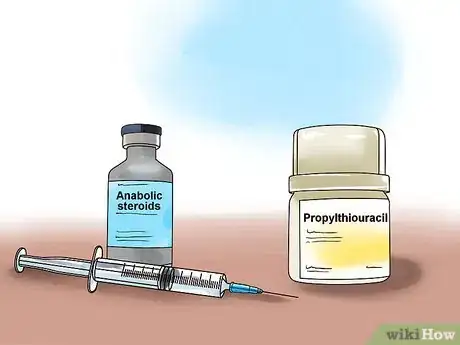
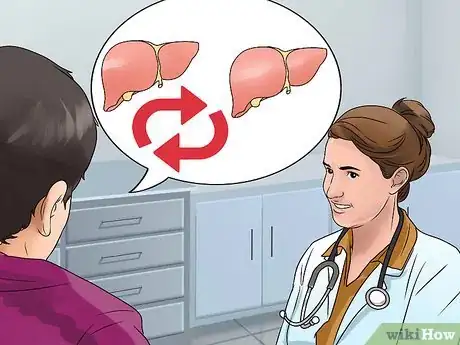
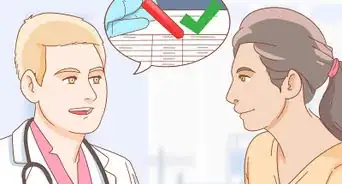
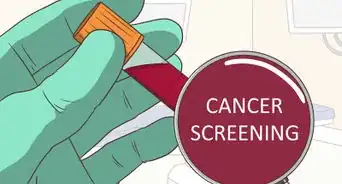
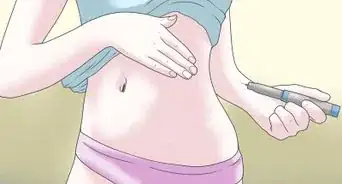
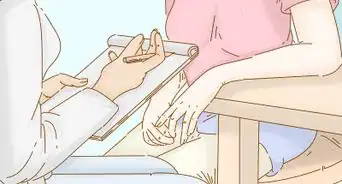
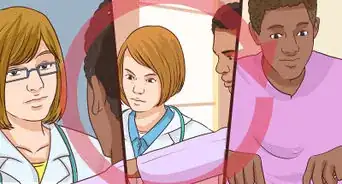
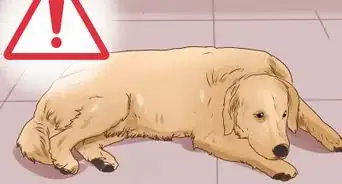

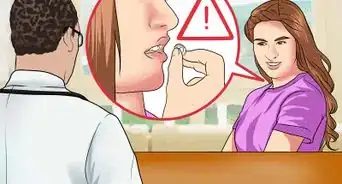
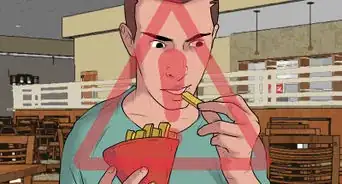
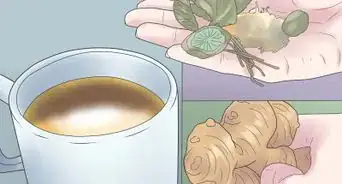
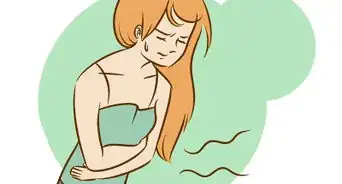
-Step-16.webp)
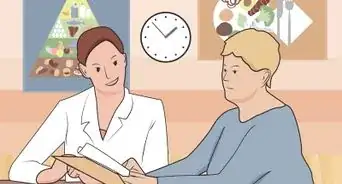
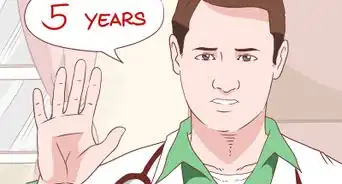








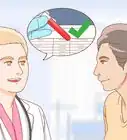
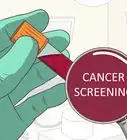
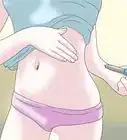
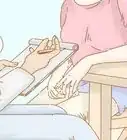



































Medical Disclaimer
The content of this article is not intended to be a substitute for professional medical advice, examination, diagnosis, or treatment. You should always contact your doctor or other qualified healthcare professional before starting, changing, or stopping any kind of health treatment.
Read More...